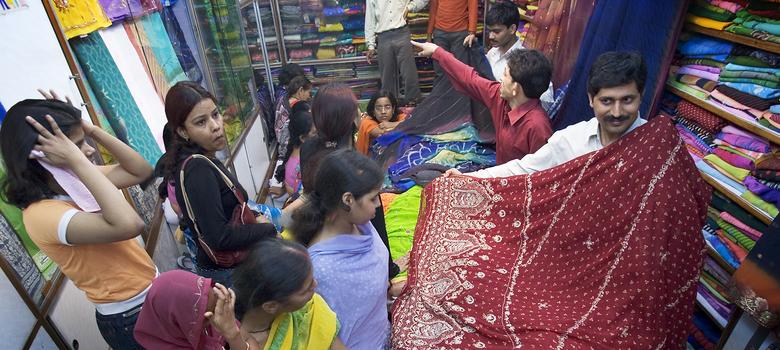It’s the question on which the dreams of a thousands of Indians startups rest, but at least the government seems to be on their side. Niti Aayog CEO Amitabh Kant thinks that brick and mortar stores will be dead by 2023, and e-commerce firms will come in and take their place. This should come as some welcome news for Indian e-commerce startups, which are currently mired in a difficult funding environment with falling valuations.
Kant’s confidence seems to be borne out of the fact that India’s making rapid strides towards turning digital. “India is the only country with a billion mobile phones and biometrics. In the last 45 years we have given licenses to 19 banks but in the last nine months, we have given licence to 23 payment banks. The brick and mortar sector will go dead,” he said at the TiE Delhi-NCR organised Startup Expo. “We are just close to $18-19 billion market in e-commerce and take it from me we will be a $300 billion market by 2023.”

His remarks seem to be in stark contrast though, to what has been happening in the Indian startups world. India’s biggest e-commerce company, Flipkart, has seen its growth slow and has had its valuation snipped by 27%. Snapdeal has fired 300 employees under dramatic circumstances that saw sloganeering against its founders at its office. And most tellingly, the online grocery delivery industry seems to be tottering.
Since the beginning of this year, Flipkart and Ola have shut down their grocery delivery arms, and in a shocker, PepperTap shut down last week. PepperTap was one of the biggest pure play grocery deliveries in the country, and had raised $50 million in less than a year. But it wasn’t enough. “We had the feeling we were moving towards the edge of a cliff”, CEO Navneet Singh had said. PepperTap had been losing money on every order, and had found it hard to change consumer behaviour in smaller cities. Grofers too has found it challenging to crack the Indian small towns market – it had pulled out of 9 Tier 2 cities in January.
And to add to all this, Indian brick and mortar is fighting back. The Future group recently launched a “Stop looking online” campaign at its Brand Factory outlets, telling people that it’s possible to find better discounts at their stores than at online retailers. That doesn’t seem as unlikely as it did a few years ago.
When e-commerce stores first opened, it was believed that since they saved on the overheads of rental costs, they’d be able to offer items at much lower prices than brick-and-mortar stores. But what was ignored was the costs of running an online store. Delivery costs are high, and easy returns policies means that a substantial chunk of orders are simply returned, at the e-commerce company’s costs. Also, e-commerce companies have been splurging elsewhere – they offer astronomical salaries to their engineers, and pamper them in swish offices. Flipkart has one of the swankiest offices of any Indian company. It might make for pretty pictures, but it’s not cheap.
In stark contrast, Indian brick and mortar outlets are known to be scrappy. In small mom-and-pop stores, the salesman can double as the delivery boy, cook and cleaner. The shops utilize every inch of space, and can be surprisingly well stocked. There’s also a personal touch – your neighbourhood store can probably address you by name, and make small talk about your family. There’s also a ready availability of credit. With such personalization, it’s hard for a faceless large corporation to come in and make inroads.
While it’s undeniable that the market opportunity for e-commerce in India is huge, brick and mortar is here to stay – for now.
